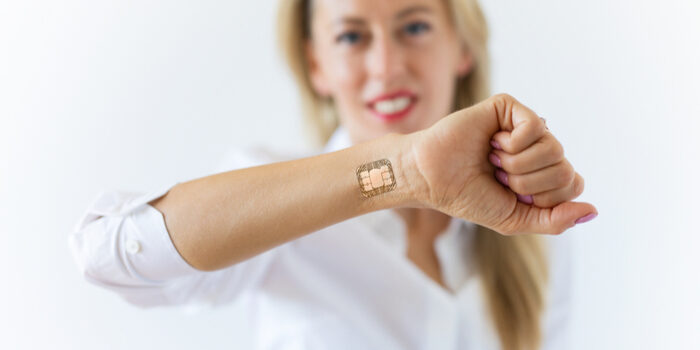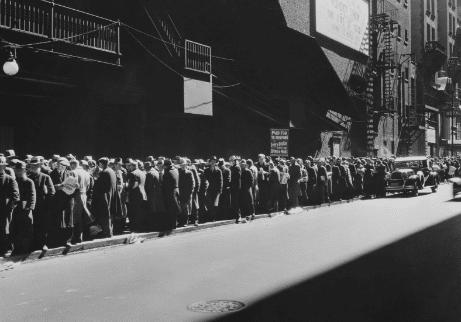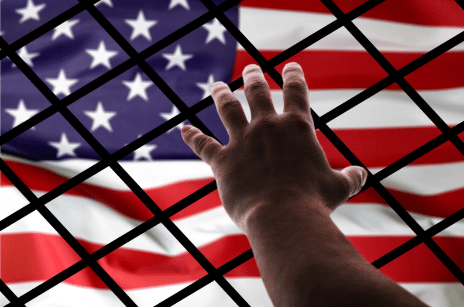
Swedes Are Advancing Digital Cash Tech to Digital Implants
Early adopters in Sweden, numbering in the thousands, are allowing themselves to be implanted with experimental microchips as a means to replace credit cards, cash and other documents necessary for day-to-day functions.
Yes, this sounds a bit crazy, not unlike a Black Mirror episode whose overarching theme centers around a dystopian world of tech gone awry. But this is no sci-fi scenario. The microchips, roughly 5.5 mm, the size of a grain of rice, are inserted into a subject’s hands.
What function does the microchip serve? It’s designed to do quite a number of things--monitoring one’s health stats, serving as a keycard, and perhaps most appealingly, replacing credit cards or making digital payments with a simple hand-swipe.
Going beyond digital cash, the microchips eliminate the need for any physical object for financial transactions. It’s like a cashless society on automation--a potential future where commerce and biology literally fuse into a singular bio-hacked form of existence. The implanted literally embody their data and capital.
The microchips were developed by Jowan Österlund, founder and CEO of Biohax international, who purportedly claims that several investors “on every continent except Antarctica” are interested in potentially investing in the technology. As Österlund told the New York Post, “Tech will move into the body, I am sure of that.”
Österlund claims that the microchips are safe, and we are assuming that he’s just talking about safety in the biological realm, but that misses the point by a mile. Perhaps the technology makes transactional and identification functionalities faster, easier, and generally more convenient. But what do implantees give in exchange? An open door to cyber hacks? Free personalized bio-data transmitted to data collectors and commercial entities? An invitation to being physically and transactionally monitored by government and corporate institutions? Total trust and reliance on electronic infrastructure and institutions controlling digital transactions?
Aside from the physical aspect of receiving an actual implant, mobile phone apps (a proto-iteration of the implant, for those cynical enough to see it that way) offering similar functions are not all that different. But sub-dermal implants can do things that non-connective apps cannot, such as monitor your blood sugar (if you’re diabetic) or take physical readings that can only be done from within the body.
But the main issue is that your personalized data, once implanted with a transmittable data bio-source, no longer remains private or personal. A third party can have access to it. They can “own” it, track it, use it, and even sell it. And how might a “bad actor” take advantage of your personal data--fabricate it, alter it, misuse it, etc.? If your private data comprises a significant part of your “identity” (public or private), what might change if someone else owns it?
What if the company you work for has access to your personal whereabouts? What if your health insurance company learns about an emerging illness, prompting a premium change? What if a marketing firm has access to your buying habits via transactional records? What if your political or religious affiliations are open for any entity to see, making you vulnerable to discrimination? In short, what risks might you assume if you allow yourself to become a readily scannable “open (digital) book”?
Perhaps some implantees are willing to give up personal privacy in exchange for convenience. And perhaps such notions are short-sighted and misguided. In Sweden, where a majority of the early adopters reside, only 1% of financial transactions take place with physical cash. Sweden is virtually a cashless society. This coincides with an ultra-low crime rate. A cash-free utopia? Cashless societies tend to appear that way, until they get hit by a seemingly random “fat tail” event that dramatically derails a status quo model. We saw this take place in Puerto Rico, for example, during Hurricanes Irma and Maria, which obliterated the country’s electronic infrastructure at a time when they needed physical cash. And that was a “natural” disaster. What happens when the disaster--whether intentional or inadvertent--is man-made?
Although we’re not strong proponents of cash, physical cash does provide a level of accessibility, privacy, security, and ownership that is far greater than its digital counterpart. Hence, you always want to keep cash handy. Ultimately, the only step up from physical cash, meaning the only thing immune to its devaluation or purchasing power erosion, is physical gold and silver. But sub-dermal implants...well, those are just a bit too risky, even oppressive. It’s literally “Big Brother,” not by coercion but rather by way of invitation.
The financial market is crumbling and EVERYONE will be affected. Only those who know what's going on and PREPARE will survive... dare we say thrive. Our 7 Simple Action Items to Protect Your Bank Account will give you the tools you need to make informed decisions to protect yourself and the ones you love.











